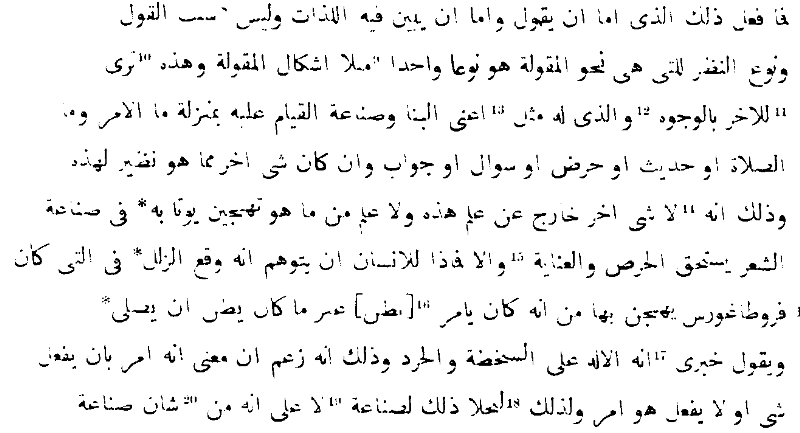Аристотель «Поэтика»: Речь (1456b8)
Перевод М. Гаспарова
[b8] В том, что касается речи, <также> есть один вопрос, принадлежащий <не поэтике, а> искусству произнесения (ύποκριτική) и знатокам его строя. Это — обороты речи (σχήματα): что есть приказание, мольба, рассказ, угроза, вопрос, ответ и тому подобное. [b13] Знание или незнание таких вещей не навлекает на поэтическое искусство никакого упрека, стоящего внимания. [b15] Действительно, можно ли счесть ошибкой то, в чем Протагор упрекает <Гомера>, будто в словах «Гнев, богиня, воспой…» он хочет выразить мольбу, а выражает приказание,
Перевод В. Аппельрота
Гнев, богиня, воспой! ―
так как, — говорит он, — велеть
Перевод Н. Новосадского
Translated by W.H. Fyfe
So we may leave this topic as one that belongs not to poetry but to another art.
Translated by S.H. Butcher
Translated by I. Bywater
Traduction Ch. Emile Ruelle
II. En effet, la connaissance ou l’ignorance de ces moyens ne donne lieu de porter contre la poétique aucun reproche sérieux. Qui supposerait qu’il y a une faute dans ce fait critiqué par Protagoras que le Poète, pensant exprimer une prière, fait une injonction lorsqu’il dit : Chante, déesse, la colère… ? Ordonner,
